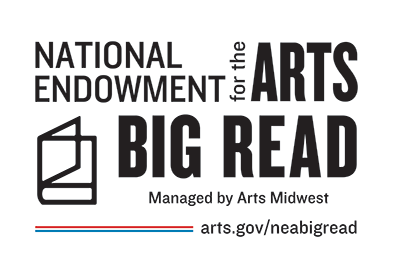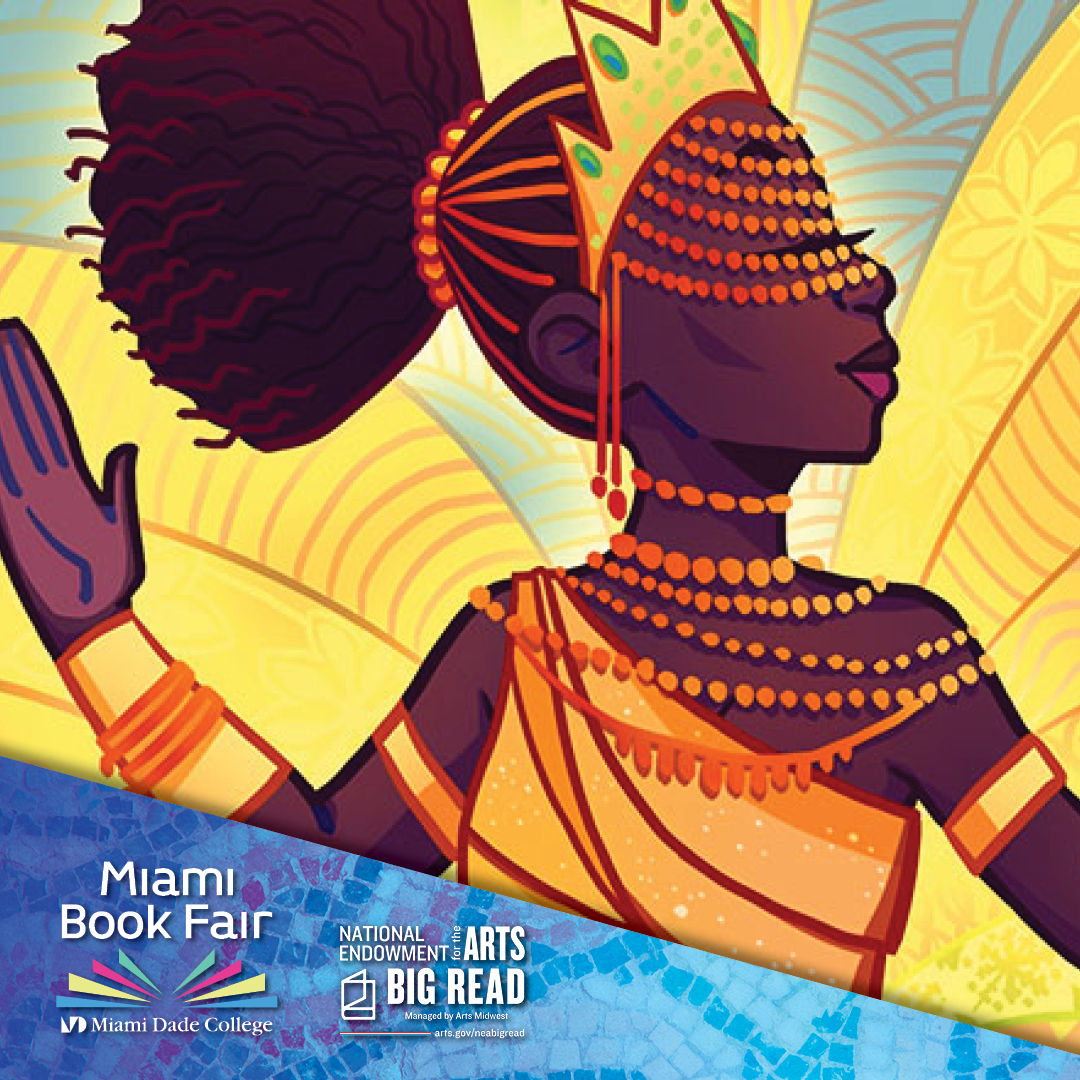- This event has passed.
Honoring the Orishas: An Exploration of Afro-Caribbean Mythologies and How They Still Influence Spiritual Practices
Afro-Caribbean spiritual traditions are rich in lore and include a cast of deities with complicated backstories and personalities – as well as rituals to honor and curry their favor – that rival the Greco-Roman pantheon of gods and demigods we’re most familiar with in the United States. In Miami, where the migration patterns of many Caribbean peoples have intersected and settled throughout history, these spiritual traditions are known by various names: Santeria or Regla de Osha (Cuba); Voudoun (Haiti); Obeah (Jamaica); and Candomble (Brazil).
These traditions, though they vary from country to country, are all descended from Yoruba (Western Africa/Nigeria), Kongo (South-Central Africa), Fon (West Africa), and Ashanti (West Africa) spiritual practices, brought to the region by enslaved people and sustained in the “New World,” often by cloaking them with Catholic iconography and worldviews. From generation to generation, these ritual observances have flourished and adapted in ways unique to shifting geographies, cultures, and the passage of time. Now, there is a return to recognizably West-Central African roots as modern practitioners no longer feel the need to hide these observances. In this engaging conversation, experts in various traditions will share the stories of the Orishas and the lwa deities – who they are and what they do – to introduce, or deepen, our understanding of rituals practiced widely throughout the Caribbean and diaspora. Moderated by Florida International University’s Jeff Gonzalez, assistant teaching professor of religious studies and associate dean, Steven J. Green School of International and Public Affairs.
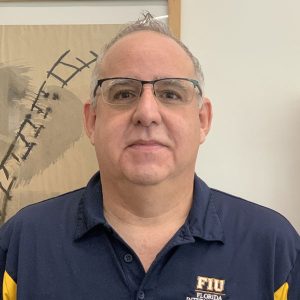 JEFF GONZALEZ’s teaching and research interests exist primarily in the areas of African and African diasporic religions, with a particular focus on Cuba, Brazil, and Nigeria. His research looks at how diasporic traditions expand, interact, and adjust to new social and cultural environments, and how religion and culture meld and define a community’s identity and social space. The role of women in diasporic traditions is central to his research. Gonzalez’s theoretical background is interdisciplinary integration of the works of scholars such as French sociologist Pierre Bourdieu with the concept of capital, English sociologist Anthony Giddens with the analysis of reflexivity, and Cuban anthropologist and ethnomusicologist Fernando Ortiz’s framework on transculturation. Since 2016 he has traveled to Western Nigeria, where he is studying the impact of renewed interest in Yoruba orisha tradition and how this continues to evolve into new forms of religious pilgrimage and tourism. Paired with that is a focus on how technology plays a role in integrating and interconnecting various diversely located communities.
JEFF GONZALEZ’s teaching and research interests exist primarily in the areas of African and African diasporic religions, with a particular focus on Cuba, Brazil, and Nigeria. His research looks at how diasporic traditions expand, interact, and adjust to new social and cultural environments, and how religion and culture meld and define a community’s identity and social space. The role of women in diasporic traditions is central to his research. Gonzalez’s theoretical background is interdisciplinary integration of the works of scholars such as French sociologist Pierre Bourdieu with the concept of capital, English sociologist Anthony Giddens with the analysis of reflexivity, and Cuban anthropologist and ethnomusicologist Fernando Ortiz’s framework on transculturation. Since 2016 he has traveled to Western Nigeria, where he is studying the impact of renewed interest in Yoruba orisha tradition and how this continues to evolve into new forms of religious pilgrimage and tourism. Paired with that is a focus on how technology plays a role in integrating and interconnecting various diversely located communities.
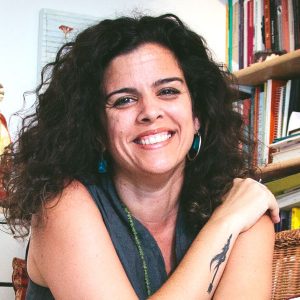 NIURCA MÁRQUEZ (she/ella) is a movement artist/researcher and author. As a trained somatic educator, she uses her body-centered work to service communities undergoing processes of healing and self-realization. A Latinx artist and activist on the margins advocating for silenced voices, she is particularly interested in notions of identity, cultural memory, ritual, and the body within a contemporary framework, as well as the multiple layers of communication and understanding in movement practices that lead to liaisons with political and social discourse. Niurca is the recipient of numerous awards for both her artistic creation and her research, and her written work on contemporary flamenco, dance sustainability, and identity politics in movement practices has appeared in various publications. Her current research includes an examination of the use of collage (and its affiliated approaches) as a methodology for evidencing transculturality, hybridity, and mestizaje as they pertain to expressions of identity and the moving body, as well as the use of body-centered and Practice as Research models in interdisciplinary teaching and learning as a way to address issues of equity and access. She is an affiliated faculty member of Florida International University’s Latin American and Caribbean Center, Cuban Research Institute, and global studies department. She is also a COIL (Collaborative Online International Learning) faculty fellow and has a shared appointment in the Honors College and the Department of Religious Studies. Niurca directs Cultural Arts Exchange, an organization dedicated to artist services and programs centered on social accountability.
NIURCA MÁRQUEZ (she/ella) is a movement artist/researcher and author. As a trained somatic educator, she uses her body-centered work to service communities undergoing processes of healing and self-realization. A Latinx artist and activist on the margins advocating for silenced voices, she is particularly interested in notions of identity, cultural memory, ritual, and the body within a contemporary framework, as well as the multiple layers of communication and understanding in movement practices that lead to liaisons with political and social discourse. Niurca is the recipient of numerous awards for both her artistic creation and her research, and her written work on contemporary flamenco, dance sustainability, and identity politics in movement practices has appeared in various publications. Her current research includes an examination of the use of collage (and its affiliated approaches) as a methodology for evidencing transculturality, hybridity, and mestizaje as they pertain to expressions of identity and the moving body, as well as the use of body-centered and Practice as Research models in interdisciplinary teaching and learning as a way to address issues of equity and access. She is an affiliated faculty member of Florida International University’s Latin American and Caribbean Center, Cuban Research Institute, and global studies department. She is also a COIL (Collaborative Online International Learning) faculty fellow and has a shared appointment in the Honors College and the Department of Religious Studies. Niurca directs Cultural Arts Exchange, an organization dedicated to artist services and programs centered on social accountability.
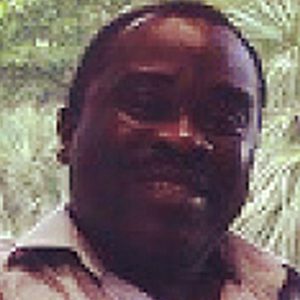 ALBERT KAFUI WUAKU is an Ewe from southern Ghana in West Africa. Currently an associate professor and graduate program director in the religious studies department at Florida International University’s School of International and Public Affairs, Wuaku’s specialty is Indigenous religions of Africa and the African diaspora. He is the author of “Hindu Gods in West Africa” (Brill, 2013), and is working on a second book tentatively titled “Vodou Under Imperial Duress: Serving the Lwa in South Florida.” The book is based on ethnographic research he’s been conducting on Vodou in South Florida since 2013. Wuaku has also researched healing and religion in rural Ghana with two collaborators from Nova Southeastern University. His other ongoing research projects include changing notions of death and dying in Ghana, Buddhism in Ghana, and sports, religion, and spirituality in Ghana.
ALBERT KAFUI WUAKU is an Ewe from southern Ghana in West Africa. Currently an associate professor and graduate program director in the religious studies department at Florida International University’s School of International and Public Affairs, Wuaku’s specialty is Indigenous religions of Africa and the African diaspora. He is the author of “Hindu Gods in West Africa” (Brill, 2013), and is working on a second book tentatively titled “Vodou Under Imperial Duress: Serving the Lwa in South Florida.” The book is based on ethnographic research he’s been conducting on Vodou in South Florida since 2013. Wuaku has also researched healing and religion in rural Ghana with two collaborators from Nova Southeastern University. His other ongoing research projects include changing notions of death and dying in Ghana, Buddhism in Ghana, and sports, religion, and spirituality in Ghana.
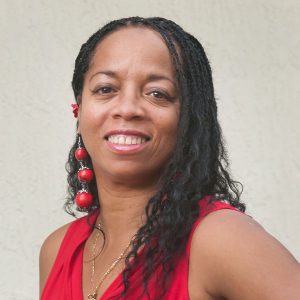 Artist, choreographer, performer, lecturer, and scholar NERI TORRES is a native of Havana, where she studied at Instituto Superior de Artes and Escuela Nacional de Instructores de Artes. After relocating to the United States, she received an MFA in dance and a minor in film from the University of Colorado, Boulder. An assistant professor of dance at the University of Texas, El Paso, she is also the founder and artistic director of the Miami-based IFÉ-ILÉ Afro-Cuban Dance Company, whose repertoire combines traditional with contemporary dance. Torres has worked on numerous international tours, film, television, and stage productions with renowned artists such as Andy Garcia and Gloria Estefan, and is the primary editor of the book “Perspectives on Dance Fusion in the Caribbean and Dance Sustainability: Rituals of Modern Society.” Currently, she’s a doctoral candidate in cultural studies at the University of the West Indies (UWI), Cave Hill, Barbados. Her research focuses on dance and migration, dance in popular culture, multimedia performance, cultural appropriation vs. appreciation, and Caribbean dance. In March 2013, she received the State of Florida Folk Heritage Award from Florida Secretary of State Ken Detzner for her significant contributions to Florida’s cultural heritage through her outstanding achievements as a performer and advocate of Afro-Cuban traditional dance.
Artist, choreographer, performer, lecturer, and scholar NERI TORRES is a native of Havana, where she studied at Instituto Superior de Artes and Escuela Nacional de Instructores de Artes. After relocating to the United States, she received an MFA in dance and a minor in film from the University of Colorado, Boulder. An assistant professor of dance at the University of Texas, El Paso, she is also the founder and artistic director of the Miami-based IFÉ-ILÉ Afro-Cuban Dance Company, whose repertoire combines traditional with contemporary dance. Torres has worked on numerous international tours, film, television, and stage productions with renowned artists such as Andy Garcia and Gloria Estefan, and is the primary editor of the book “Perspectives on Dance Fusion in the Caribbean and Dance Sustainability: Rituals of Modern Society.” Currently, she’s a doctoral candidate in cultural studies at the University of the West Indies (UWI), Cave Hill, Barbados. Her research focuses on dance and migration, dance in popular culture, multimedia performance, cultural appropriation vs. appreciation, and Caribbean dance. In March 2013, she received the State of Florida Folk Heritage Award from Florida Secretary of State Ken Detzner for her significant contributions to Florida’s cultural heritage through her outstanding achievements as a performer and advocate of Afro-Cuban traditional dance.
Presented as part of the 2024 NEA Big Read Miami.